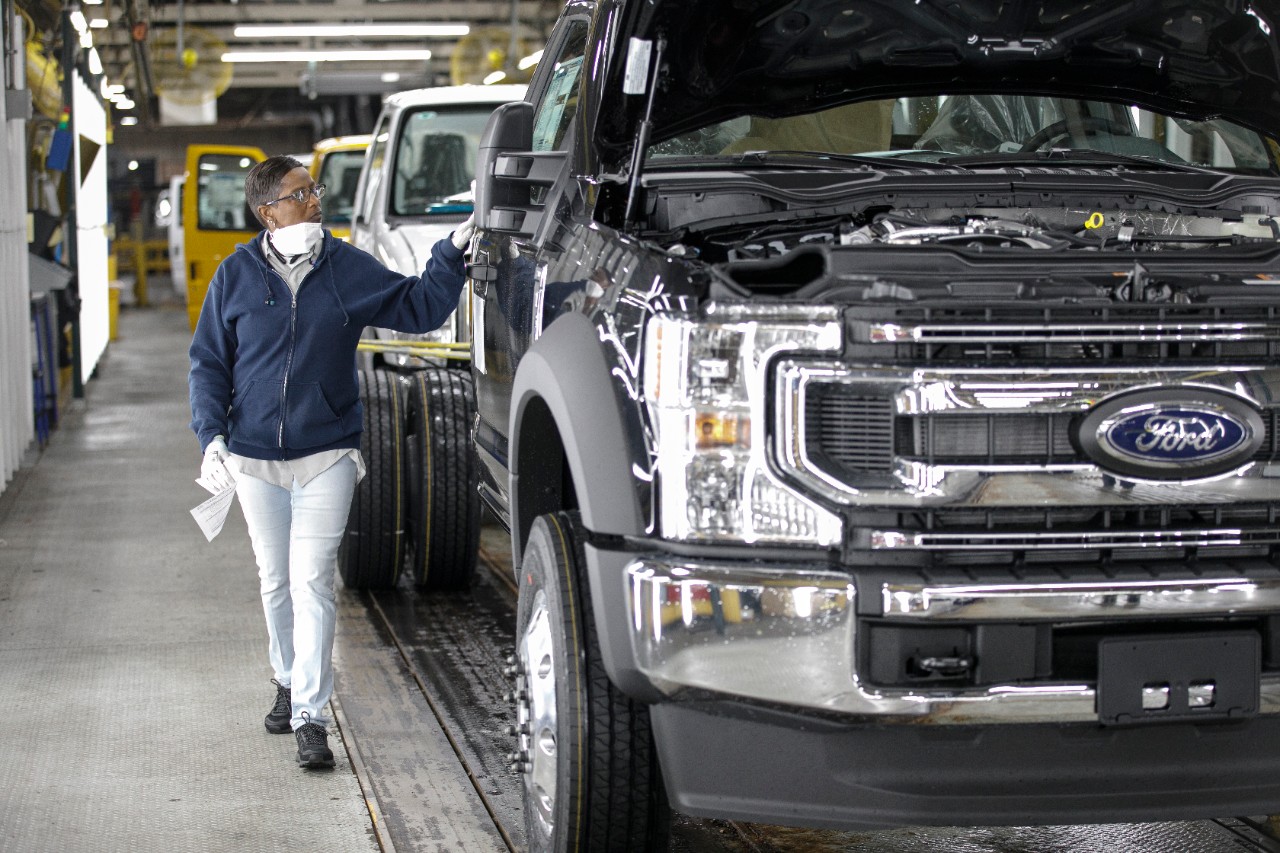
Ford's 2015 F-150. Photo credit: Ford.
By all accounts, at least so far, Ford's (F 0.89%) all-new 2015 F-150 is going to be a major success when it hits the dealerships later this year. That shouldn't come as a surprise, considering Ford's F-Series has been the best-selling truck for more than 37 years and has outsold the Silverado, America's second best-selling vehicle, and the Sierra combined for the past four consecutive years. Since 1948, Ford has sold more than 33 million trucks, and in 2013, a new F-Series pickup sold every 41 seconds. While I fully expect sales of the F-Series to surge next year with its new F-150 design, there are two factors I think consumers will struggle to accept.

Ford's 2.7-liter EcoBoost. Photo credit: Ford.
2.7-liter EcoBoost
Ford is introducing a smaller EcoBoost engine option to power its "Ford Tough" pickup – and it's a 2.7-liter. While the engines aren't at all similar, you can find a 5.0-liter in my Mustang GT. I think many car buyers are going to have a tough time swallowing the idea of a big truck with a small 2.7-liter EcoBoost powertrain. However, Ford has proved that it can market and sell the EcoBoost.

Source: Ford.
You can see how quickly sales of the EcoBoost surged globally, and narrowing it down to the United States, it has already topped 425,000 units and can be found under the hood of 35% of F-150s sold in the past three years.
I have no doubt the engine is solid and that Ford's engineers took lessons learned from its 3.5-liter EcoBoost that has been selling in the F-150 and applied them to the new 2.7-liter engine, but I'll be curious to see the take rate information when the truck begins selling later this year. While many may not purchase the small engine, the upshot is that selling the new engine won't set the company back hardly at all if it flops, and at the very least, it improves the F-150's engine flexibility.
The 2.7-liter engine will simply be an addition to the company's lineup of the 3.5-liter EcoBoost, the 3.5-liter Ti-VCT V6, and the 5.0-liter Ti-VCT V8. The lineup should have the flexibility to meet every, and different, consumer needs.

Ford's pickup frame is as durable as ever. Photo credit: Ford.
Beer can or Humvee?
The second thing I think some consumers will struggle to accept is that Ford is adding a significant amount of aluminum to its truck. Immediately people will think of empty beer cans being smashed against foreheads. However, Ford should be able to dispel those thoughts by explaining how it used the aluminum.
Ford actually increased the use of high-strength steel from 23% to 77% in its F-150 frame -- making the backbone of the truck just as durable as ever. The high-strength, military-grade aluminum can be found throughout the F-150 body, and it will improve dent and ding resistance in addition to helping cut up to 700 pounds of weight from the full-size pickup.
Ford believes the move will enable the F-150 to tow and haul more while accelerating more quickly and stopping in a shorter time. Ford is also going to extremes to test the lighter truck to make sure it performs just as well as, or better than, any previous F-150.
The all-new F-150 will undergo more than 10 million miles of testing by the time it hits dealerships -- that's more testing than any other truck in Ford's history. While aluminum doesn't rust, it does corrode, and the truck underwent strenuous salt and acidified sprays to make sure the aluminum would hold up. The folks at Ford racing even went as far as disguising the pickup and entering it into the 2013 Baja 1000, a grueling 883-mile race. According to the company, it didn't even suffer as much as a flat tire.
Bottom line
Ford's 2015 F-150 is the company's most important vehicle, and it probably always will be. By some estimates, the profits from these trucks fuel as much as 40% of revenue in Ford's North America region and even more in pre-tax profits. If the idea of more aluminum and smaller engines creates hesitation with consumers, it could be a big deal -- but I believe the truck's biggest two worries thus far won't hold the F-150 back from continuing to reign on top of the sales charts.






